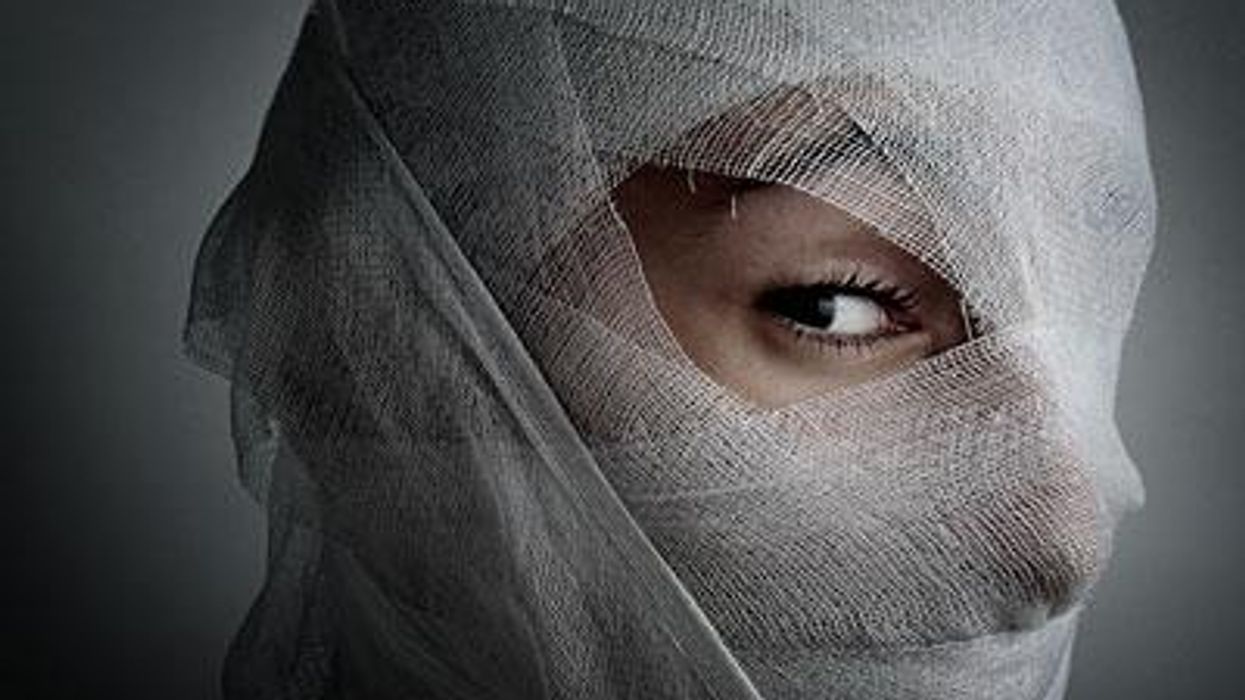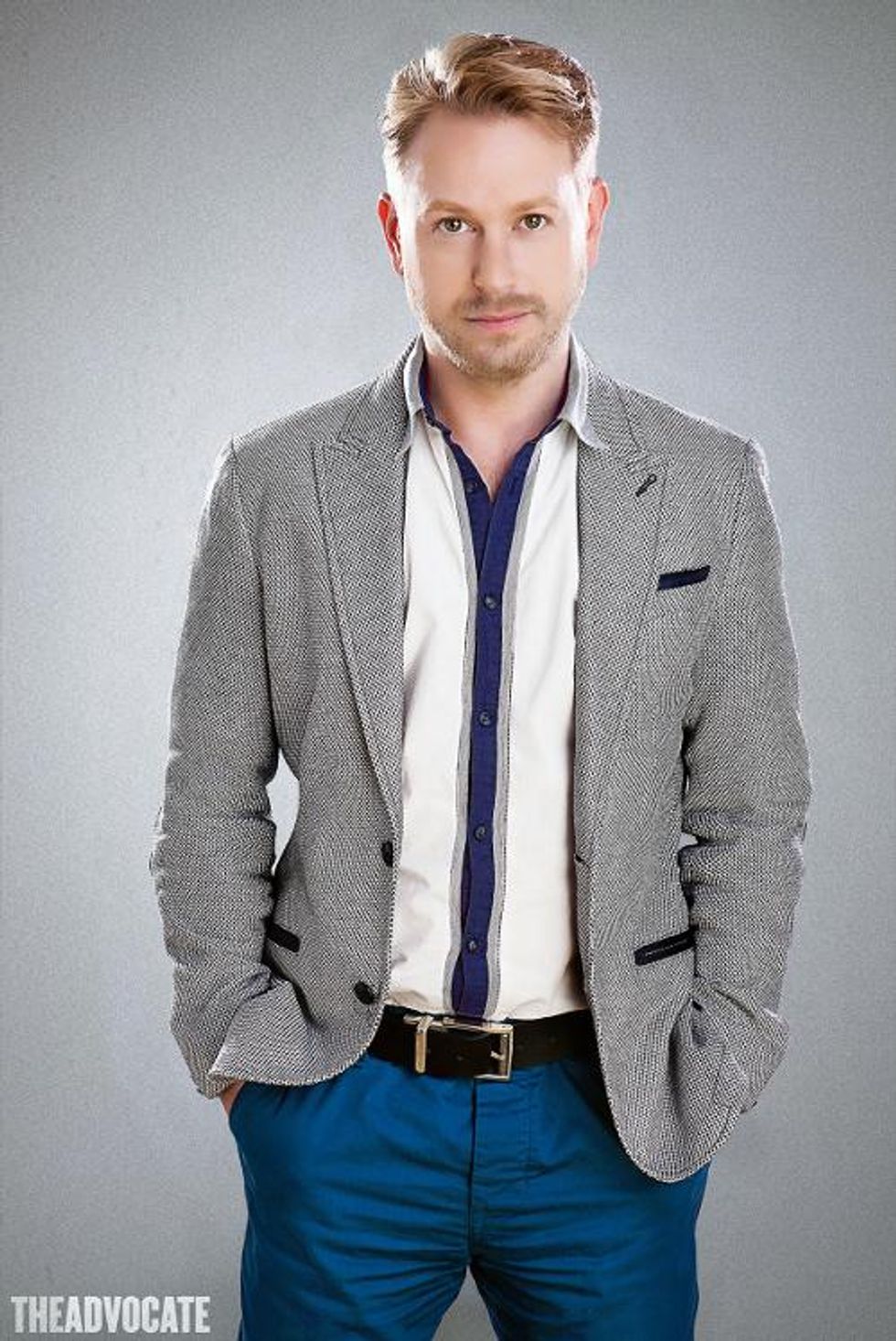 My boyfriend was sent to conversion camp. An ex was beaten by his gay-hating father and brothers on a regular basis. My father wouldn't let me take bubble baths because they were too "gay."
My boyfriend was sent to conversion camp. An ex was beaten by his gay-hating father and brothers on a regular basis. My father wouldn't let me take bubble baths because they were too "gay."
These experiences are not life-affirming. So, during a recent conversation regarding the disquieting behavior of some LGBT peers, it seemed entirely innocuous to note, "All gay people are damaged." A fellow editor agreed but mentioned many folks would take offense at that. That blew my mind.
Who could argue with that? How could we not be emotionally harmed by a society that tells us we're screwed up at every turn? I don't know one gay guy who never had "fag" hurled at him, or many lesbians never told they could switch teams if they wanted to. That's a cakewalk compared to the beatings and killings we're still subjected to on the streets or the fear most of us have walking hand-in-hand with our partners and spouses, even in big cities. Most disturbing is that our experiences, as Americans, are much less frightening than those experienced by LGBT people in most of the world.
Glorifying victimhood is rarely helpful, but denying it exists is ignorant and dangerous. All of this hatred we experience, whether it be overt or covert, is internalized and exerts itself in different ways -- some succumb to drugs, promiscuous sex, or self-hate. But most of us deal with it and prosper. I wonder if some gays would equate the "damaged" label with weakness; that to be affected by an intolerant society is a reflection on your own strength or perseverance. For me, being aware of the injustices is part of being an active part of society. Keeping your eyes open and reveling in tragedy are different.
It sometimes takes a harsh circumstance to remind us how different our lives are. In The Case Against 8, HBO's powerful documentary on the defeat of California's antigay ballot initiative, lead plaintiff Kristin Perry had an "a-ha moment" while testifying in front of a federal judge. Defense attorney Ted Olson asked Perry if she thought granting marriage equality to gays and lesbians would have an effect on other forms of anti=LGBT discrimination. Perry said her whole life would have been different, and better, if the biggest choice she made in it -- marriage -- was given the same weight and respect as everyone else's: "So, if Prop. 8 were undone and kids like me, growing up in Bakersfield right now, can never know what this felt like, then I assume their entire lives would be on a higher arc, they would live with a higher sense of themselves that would improve the quality of their entire life."
Reflecting on that moment later, she said, "It was powerful to connect the dots spontaneously on the stand and realize you've been living under this blanket of hate everywhere you turn. People tell you, 'Tough shit, you don't get to have that. You don't get to feel protected at work, you don't get to feel your kids are like other people's kids, you don't get to feel like your relationship is like other people's relationships. You have to come out every single day everywhere you go, and good luck with that. ... This isn't just about me being a strong enough person, this is what the whole lesbian and gay community is dealing with and, frankly, any minority group."
Would you have it any other way, though? Later in the documentary when Perry is discussing the discrimination she experiences, she says, while tearing up, "The sad parts [of being an LGBT person], I feel like I'm OK with because I'd rather be who I am today than somebody who never felt challenged and never had to find out who they really were. And I know who I am."
I know I'm damaged by the homophobic world I was born into; that's a reflection of the world, not me. But what happens to the next generation is most certainly on me, and us. Not sure what to do? Click here, here, here, here, here, here, here, and here.
NEAL BROVERMAN is a columnist for The Advocate and the editor in chief of Out Traveler. Follow him on Twitter @nbroverman


 My boyfriend was sent to conversion camp. An ex was beaten by his gay-hating father and brothers on a regular basis. My father wouldn't let me take bubble baths because they were too "gay."
My boyfriend was sent to conversion camp. An ex was beaten by his gay-hating father and brothers on a regular basis. My father wouldn't let me take bubble baths because they were too "gay."


































































Charlie Kirk DID say stoning gay people was the 'perfect law' — and these other heinous quotes